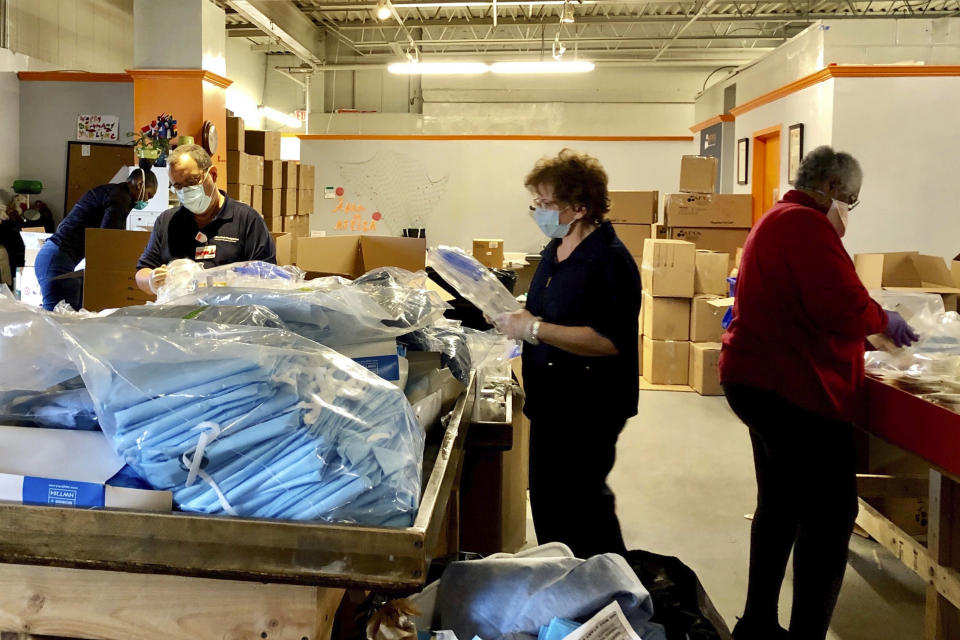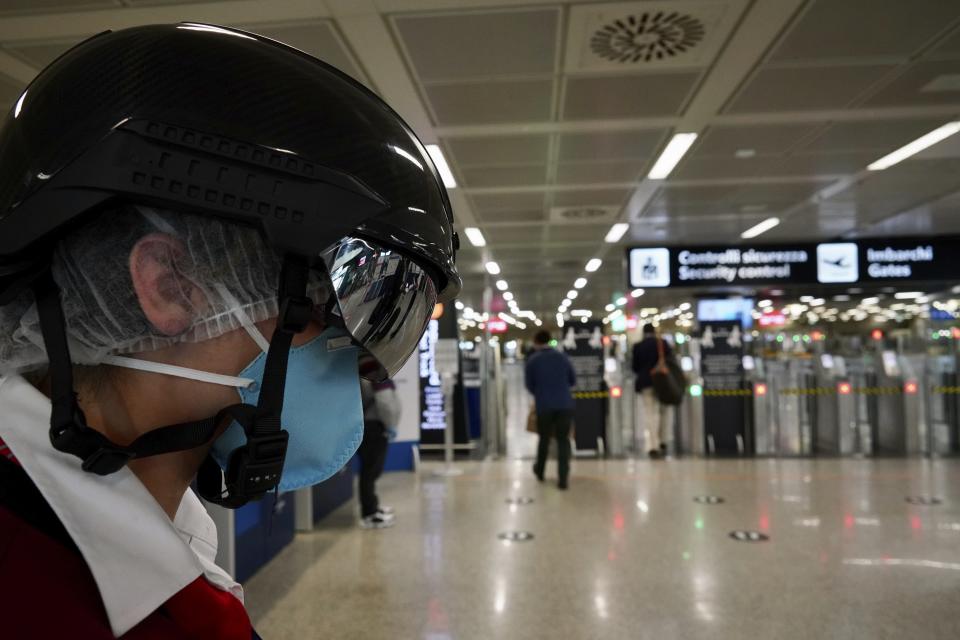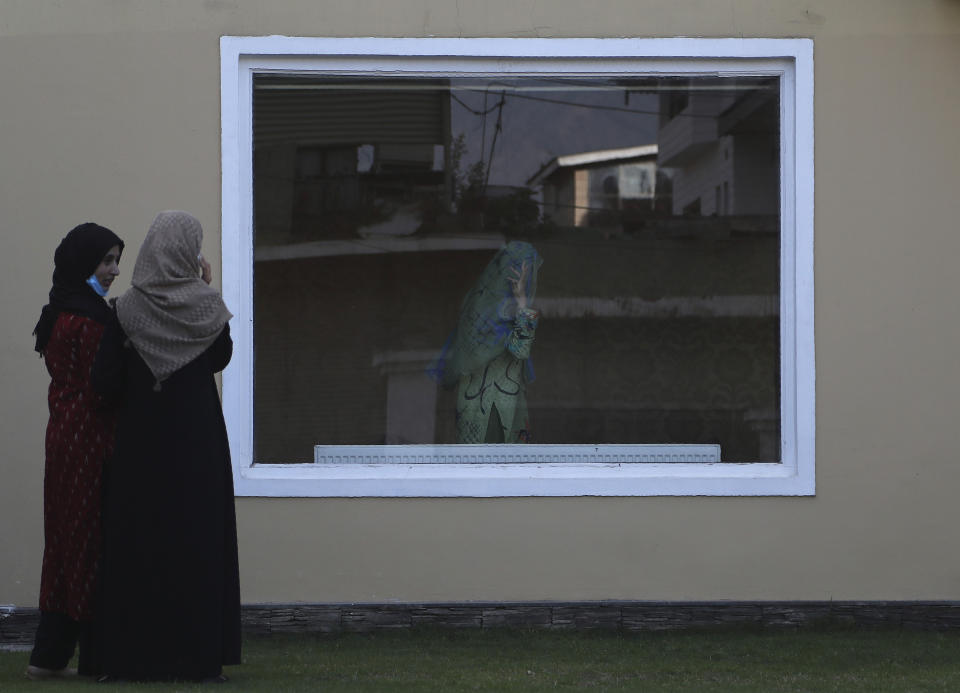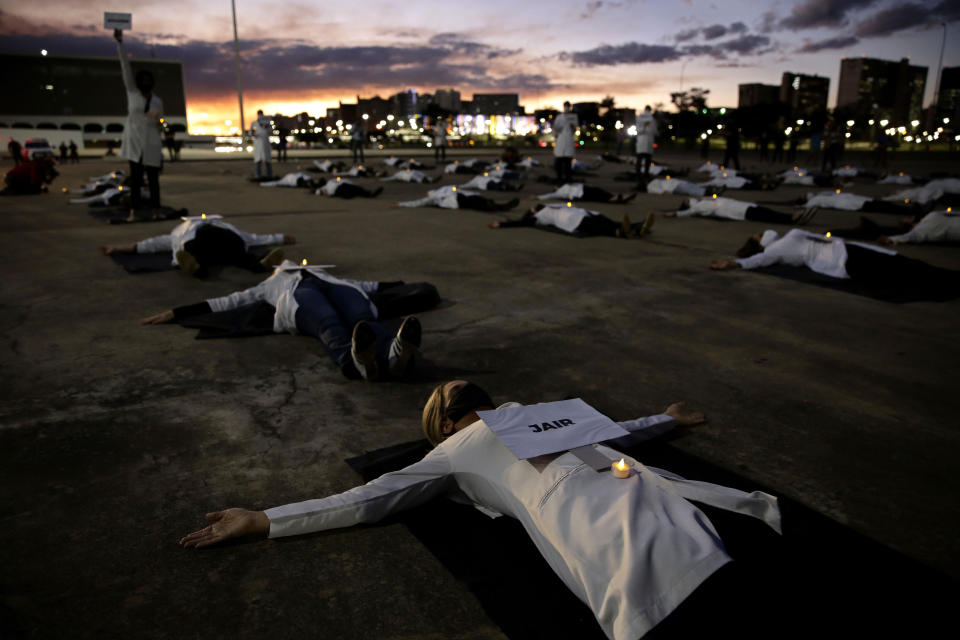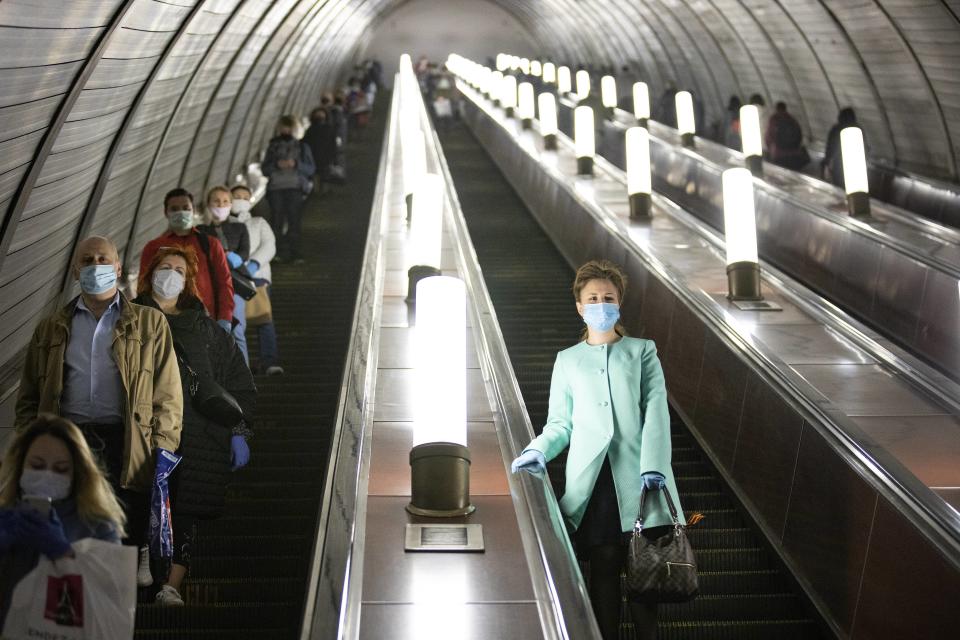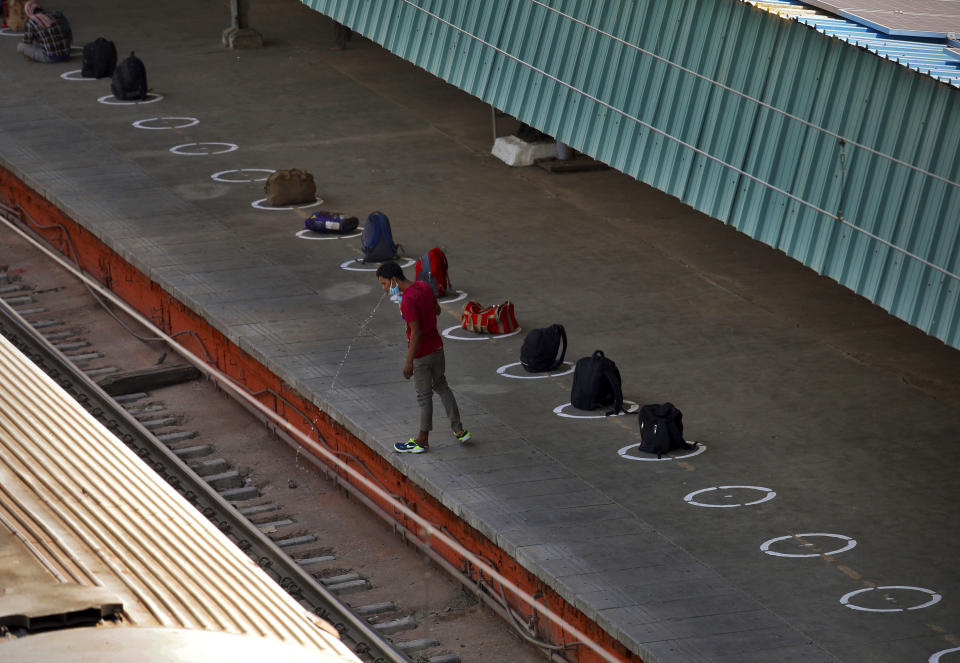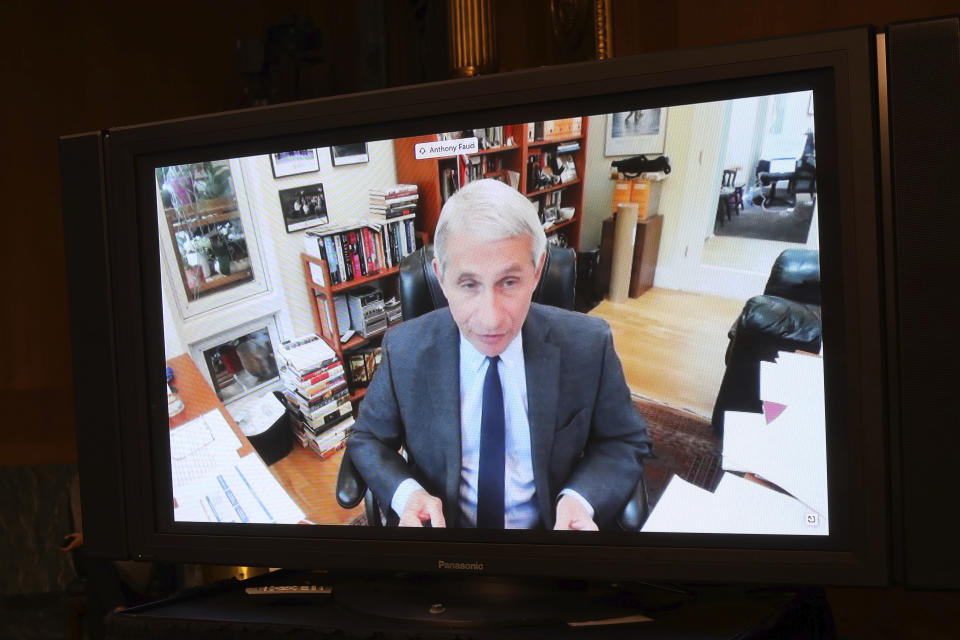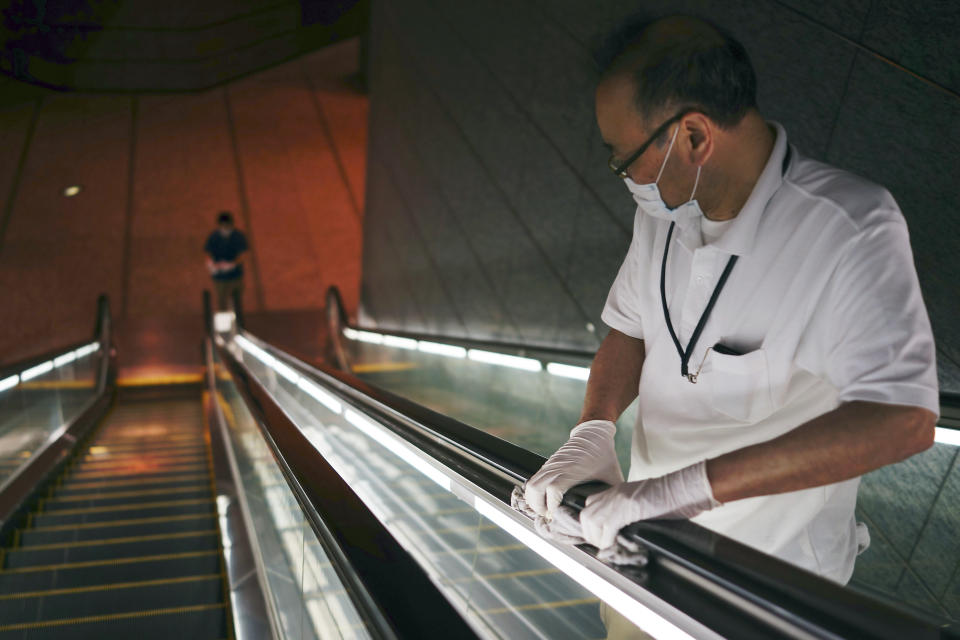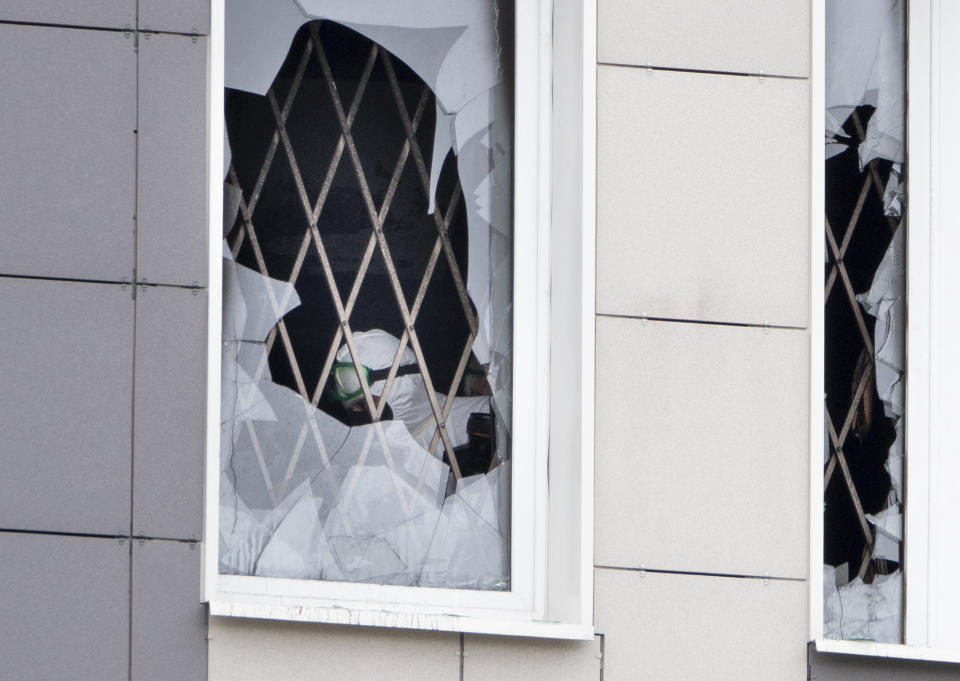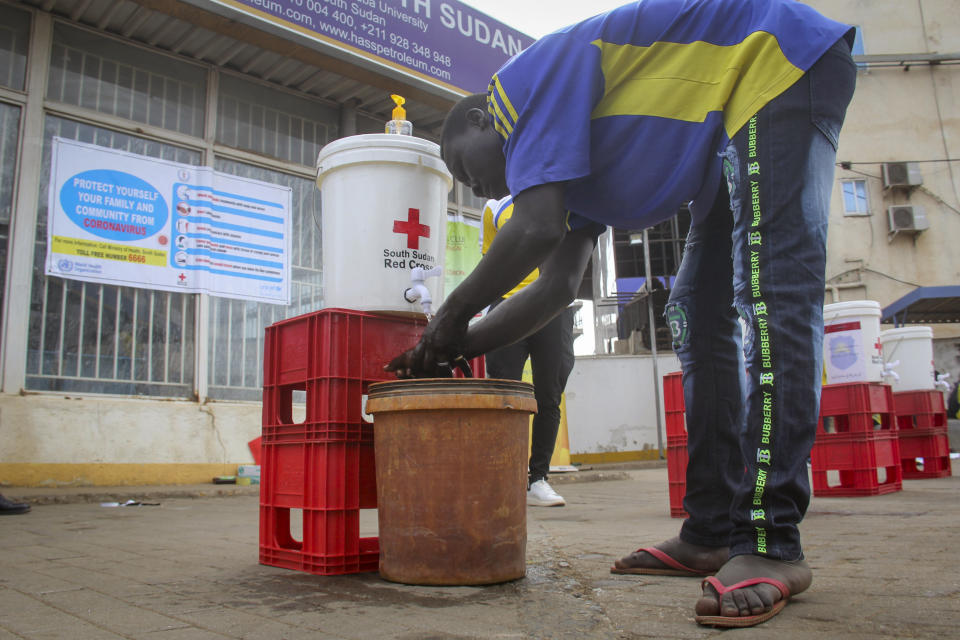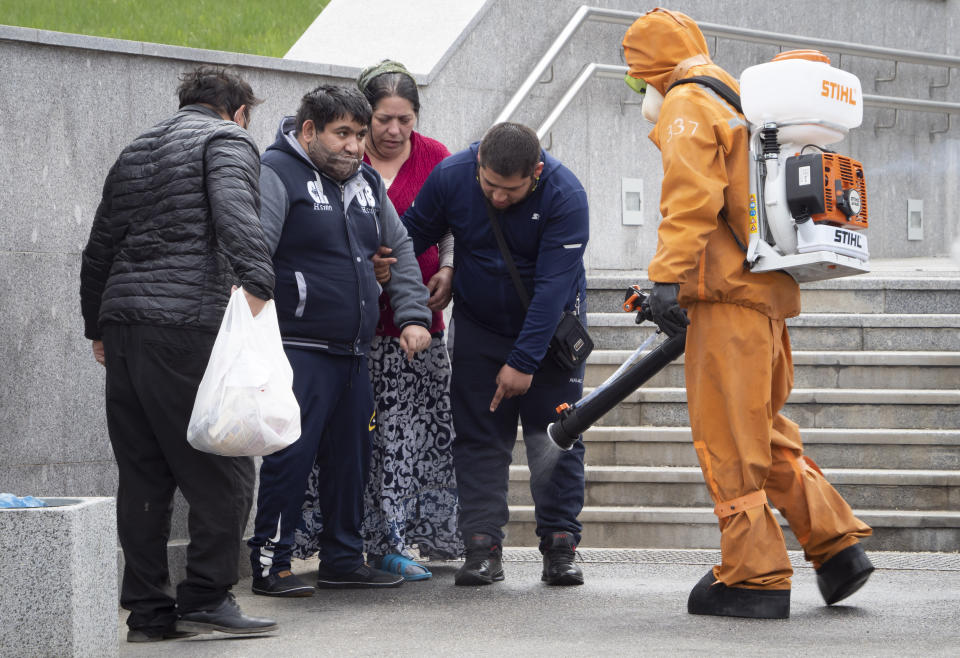What you need to know today about the virus outbreak
Thousands of new coronavirus infections are being reported daily, many of them job-related, even as President Donald Trump urges people to return to work.
There are plenty of new infections outside the workplace, including in nursing homes, and among retired and unemployed people. Yet all of the 15 U.S. counties with the highest per capita infection rates between April 28 and May 5 are homes to meatpacking and poultry-processing plants or state prisons, according to data compiled by The Associated Press.
There’s been a spike of new infections among construction workers in Austin, Texas, where that sector recently returned to work. Even the White House has proven vulnerable, with positive coronavirus tests for one of Trump’s valets and Vice President Mike Pence’s press secretary.
Here are some of AP’s top stories Tuesday on the world’s coronavirus pandemic. Follow APNews.com/VirusOutbreak for updates through the day and APNews.com/UnderstandingtheOutbreak for stories explaining some of its complexities.
WHAT’S HAPPENING TODAY:
— Dr. Anthony Fauci, the nation’s top infectious disease expert, warned Congress Tuesday that if the country reopens too soon during the coronavirus pandemic, it will bring “needless suffering and death.” Fauci was among the experts who testified before a Senate panel.
— As the pandemic stretches on, a new type of internet matchmaking is helping hospitals get scarce supplies. Numerous online platforms and charity projects have popped up to match hospitals in need with exchanges, loans or donations of personal protective equipment, ventilators and even doctors.
— Homeland Security Investigations, an arm of the Department of Homeland Security, is leading a nationwide crackdown on people seeking to use the virus to perpetrate frauds, from selling counterfeit products to fake cures. It has opened over 370 cases and so far arrested 11 people in an effort it calls “Operation Stolen Promise.”
— Faced with overwhelmed hospitals and surging coronavirus deaths, Brazilian state and city governments are lurching forward with mandatory lockdowns against the will of President Jair Bolsonaro, who says job losses are more damaging than COVID-19.
— The economic paralysis caused by the coronavirus led in April to the steepest month-to-month fall in U.S. consumer prices since the 2008 financial crisis — a 0.8% drop that was driven by a plunge in gasoline prices. On Tuesday, House Speaker Nancy Pelosi unveiled a more than $3 trillion coronavirus aid package that would provide nearly $1 trillion for states and cities, “hazard pay” for essential workers and a new round of cash payments to individuals. Top GOP senators flatly rejected the House bill.
___
WHAT YOU NEED TO KNOW:
For most people, the coronavirus causes mild or moderate symptoms, such as fever and cough that clear up in two to three weeks. For some, especially older adults and people with existing health problems, it can cause more severe illness, including pneumonia and death. The vast majority of people recover.
Here are the symptoms of the virus compared with the common flu.
One of the best ways to prevent spread of the virus is washing your hands with soap and water. The U.S. Centers for Disease Control and Prevention recommends first washing with warm or cold water and then lathering soap for 20 seconds to get it on the backs of hands, between fingers and under fingernails before rinsing off.
You should wash your phone, too. Here’s how.
TRACKING THE VIRUS: Drill down and zoom in at the individual county level, and you can access numbers that will show you the situation where you are, and where loved ones or people you’re worried about live.
___
ONE NUMBER:
— 5: A fire at St. George Hospital in St. Petersburg, Russia, killed five coronavirus patients. Emergency officials said all five had been put on ventilators. Russia has reported more than 220,000 confirmed cases and 2,009 deaths — but international health experts say those numbers undercount the country’s outbreak.
IN OTHER NEWS:
— RECLINER DJs: Retirees in multiple states have become volunteer DJs for a new online radio hour known as “Radio Recliner.” The 60-minute show began airing last month, starting with retirees in middle Tennessee, recording from their recliners while quarantined.
— HOME OFFICES TO STAY: When workers around the world eventually return to their desks, they’ll find many changes due to the pandemic. For a start, fewer people will go back to their offices as the coronavirus crisis makes working from home more accepted, health concerns linger and companies weigh rent savings and productivity benefits.
___
Follow AP coverage of the virus outbreak at https://apnews.com/VirusOutbreak and https://apnews.com/UnderstandingtheOutbreak
